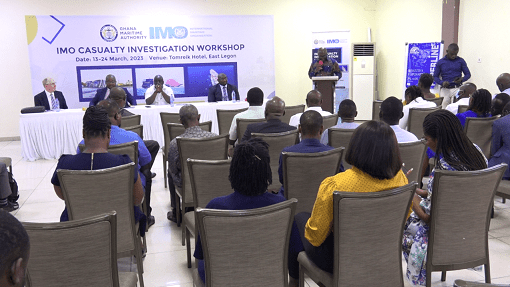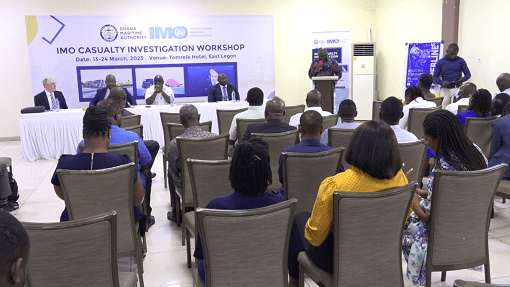
The International Maritime Organization has dealt a significant blow to global shipping decarbonization efforts. Member states decided to postpone adoption of the world’s first binding carbon pricing mechanism for international shipping, delaying implementation by twelve months despite substantial agreement on the framework’s substance.
The decision emerged during the MEPC’s extraordinary session concluded in London on October 17, following four days of intense negotiations. The postponement means the Net-Zero Framework, which had been approved in principle in April, will not enter force as originally scheduled and now faces another round of member state negotiations before formal adoption.
The framework would have established mandatory emission limits and created an economic pricing system for ships exceeding carbon intensity targets. For vessels over 5,000 gross tonnes, the system would have required operators to purchase remedial units costing between $100 and $380 per tonne of excess emissions, with revenues flowing into a fund supporting developing nations’ maritime decarbonization efforts.
Thomas A. Kazakos, Secretary General of the International Chamber of Shipping, expressed industry frustration at the outcome. “We are disappointed that member states have not been able to agree a way forward at this meeting,” Kazakos stated. “Industry needs clarity to be able to make the investments needed to decarbonise the maritime sector, in line with the goals set out in the IMO GHG strategy.”
For Ghana, the delay carries both immediate economic implications and longer-term strategic consequences. Ghana’s economy is heavily reliant on maritime trade, with cocoa, gold, oil, bauxite, aluminum, and manufactured goods all moving through Tema and Takoradi. The postponement creates uncertainty around when carbon pricing will raise shipping costs, a development that could increase import expenses and potentially elevate consumer prices.
Yet the delay also presents opportunity. According to observers tracking African maritime policy, the extended timeline allows Ghana and other developing nations to better prepare for compliance and secure favorable terms in the emerging climate finance architecture. A $100 to $380 per tonne carbon pricing system starting in 2028 could generate $13 billion for a climate fund, with Africa handling $200 billion in maritime trade annually.
Ghana has been positioning itself as a regional leader in green shipping. Ghana’s commitment to developing a National Action Plan demonstrates strong leadership in embracing maritime decarbonization and leveraging economic opportunities, according to the IMO. The country has been selected to receive technical support under the GreenVoyage2050 programme to reduce greenhouse gas emissions from shipping and align with global decarbonization goals.
The postponement reflects deeper tensions within the maritime industry. Political maneuvering from Saudi Arabia and Singapore led to the delay motion, with the Trump Administration reportedly threatening retaliatory measures on countries supporting the framework. Greek shipping operators, a powerful constituency in global maritime affairs, also expressed concerns that emission penalties could prove prohibitively expensive given current alternative fuel scarcity.
Climate advocates warned the delay risks undermining global climate commitments. Civil society organizations emphasized that postponement creates uncertainty for shipping companies planning decarbonization investments and threatens the timeline for achieving zero-emission fuel adoption targets.
When negotiations resume in October 2026, Ghana’s maritime authorities must balance two competing interests. Higher shipping costs threaten agricultural exports and import expenses. Yet investment in green port infrastructure, renewable energy shore power, and alternative fuel production could transform Ghana into West Africa’s leading hub for sustainable maritime services, generating thousands of green jobs while protecting long-term competitiveness.
The Ghana Maritime Authority has already begun groundwork. Discussions at Tema Port have focused on regional cooperation to optimize port operations, reduce congestion, and cut emissions from ships. These initiatives continue regardless of the IMO’s formal timeline.
